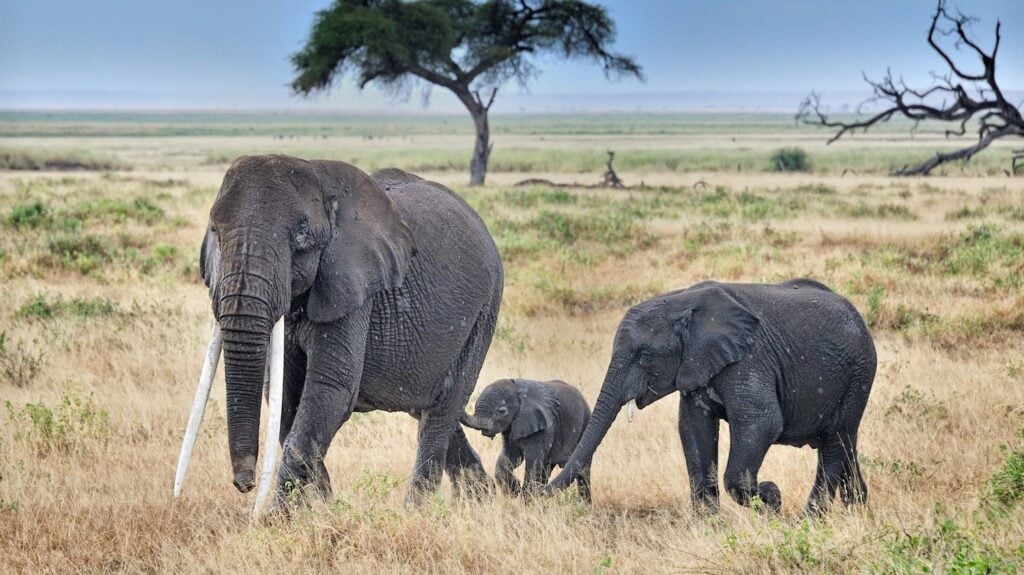Elephants are known to be the largest land animals on the planet. There are three living species of elephants: the African bush elephant, the African forest elephant, and the Asian elephant. They are distinguished by a long proboscis known as a trunk, tusks, large ear flaps, massive legs, and tough but sensitive skin. But did you know how elephants react to death in general?
African elephants bury dead or sleeping humans or even assist them when they are injured. One woman dozed off beneath a tree and awoke to find an elephant standing over her, gently touching her. When more elephants arrived, they buried her beneath branches. The next morning, she was discovered unharmed.
How Do Elephants Comprehend Death?
Most modern ethologists consider elephants to be among the most intelligent animals on the planet. An elephant’s brain weighs slightly more than 5 kg, more than any other land animal, and while the largest whales have body masses twenty times that of a typical elephant, a whale’s brain weighs barely twice as much as an elephant’s.
Elephants have approximately 257 billion neurons. In terms of general connectivity and functional areas, elephant brains are similar to those of humans and many other mammals, with a few notable structural differences. The elephant’s cortex has about one-third the number of neurons as a human brain, despite being initially estimated to have as many neurons as a human brain.
They can display a wide range of behaviors, such as those associated with grief, learning, mimicry, play, altruism, tool use, compassion, cooperation, self-awareness, memory, and communication. Furthermore, evidence suggests that elephants understand pointing: the ability to communicate an object nonverbally by extending a finger or equivalent. In this regard, they are thought to be on par with cetaceans and primates.
Some researchers argue that culling elephants is morally wrong due to claims of high intelligence and strong family ties. The elephant was described by Aristotle as the animal that surpasses all others in wit and mind.
(Source: National Geographic)
The Elephant Death Ritual
Elephants have influenced people for centuries, and humans have spent a considerable amount of time monitoring and studying these gentle giants including the rituals they do.
Elephants live in close-knit social groups and can live for up to 70 years, forming strong bonds and memories together. When one of the herd elephants dies, the entire herd mourns. A family will always stop to investigate the bones or carcass of another elephant if they see them. Aside from grief, other emotions such as denial and sympathy can be seen at an elephant funeral.
The elephants generally touch the bones and gently pick them up with their trunks while remaining very quiet, and they sometimes go about covering the body with leaves and grass. They may even stay with the body for days or weeks if the elephant was from their herd.
The elephant’s ability to experience complex emotions and grief is truly unique among wild animals, and they exhibit an incredible self-awareness of their existence, making them both relatable and intriguing. (Source: Journeys Discovering Africa)
